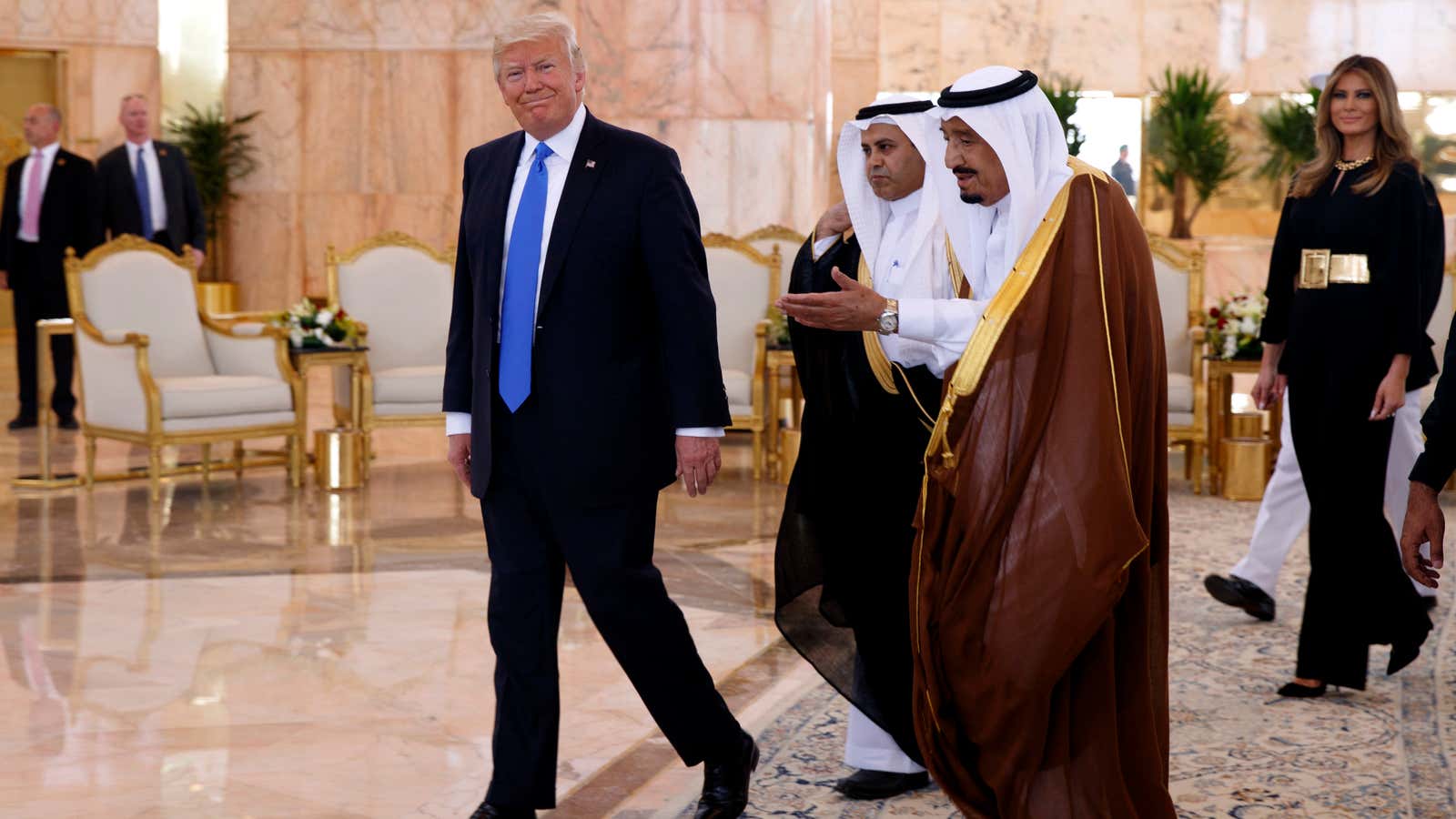The United States will kick some Saudi diplomats out of the country, and could freeze the assets of others in retaliation for the murder of journalist Jamal Khashoggi, officials said today.
“We have ID’d some of the individuals responsible” for Khashoggi’s death, secretary of state Mike Pompeo told reporters. The individuals include Saudi intelligence and foreign ministry officials, and members of the “royal court.” The State Department has begun “revoking visas,” and is studying the “applicability of the global Magnitsky sanctions to these individuals,” he said.
“They had a very bad original concept,” Trump also told reporters today. “[The murder] was carried out poorly and the cover-up was one of the worst cover-ups in the history of cover-ups. Very simple. Bad deal, should have never been thought of. Somebody really messed up.”
The comments, revocation of visas and threats to freeze assets mark a notable shift from the administration’s earlier posture. In the three weeks after Khashoggi disappeared, the US was slow to react. Trump initially stressed that he didn’t want to jeopardize arms sales to Saudi Arabia, and pointed out that Khashoggi was not a US citizen (he was a legal resident.)
But Congress pressured the president to act, invoking the 2014 Global Magnitsky Act. On Oct.10, ten Republican senators, including those that voted to sell arms to Saudi Arabia, used the act to force Trump into action.
As the letter states, the Global Magnitsky Act “requires the President, upon receipt of a request from the Chairman and Ranking Member of the Senate Committee on Foreign Relations, to determine whether a foreign person is responsible for an extrajudicial killing, torture, or other gross violation of internationally recognized human rights against an individual exercising freedom of expression.”
Without former Arizona senator John McCain, there would be no Magnitsky Act at all, as investor Bill Browder explained in Time when McCain died earlier this year. The act was named after Browder’s business partner Sergei Magnitsky, who was killed in a Russian prison in 2009. Seeking some retribution for his death, Browder, a US citizen, traveled to Washington, begging politicians for help.
Only McCain would listen, he writes, becoming “my hero by creating a new tool for bringing Sergei’s killers and other human rights abusers to justice.” The first bill, introduced by McCain and senator Benjamin Cardin from Maryland, was passed in 2012. It specifically targeted Russians involved in Magnitsky’s death, imposing sanctions that financially crippled some of Russia’s most powerful.
In January 2014, McCain and Cardin introduced the global version, designed to hold human rights abusers from anywhere in the world accountable, by denying them entry to the US and barring them from using US banks.
As Browder explains:
Because of the clear power of the Magnitsky Act in hitting dictators and kleptocrats where it hurts—in their bank accounts—Senator McCain wondered why Chinese, Venezuelan, or Uzbek human rights abusers enjoyed a better deal than Russian ones. Shouldn’t the Magnitsky Act apply to bad guys everywhere?
Trump has praised plenty of “bad guys” in the past, including dictators like Russia’s Vladimir Putin, North Korea’s Kim Jong Un, and China’s Xi Jinping. In this case, however, he’ll have to be tough on them instead.
